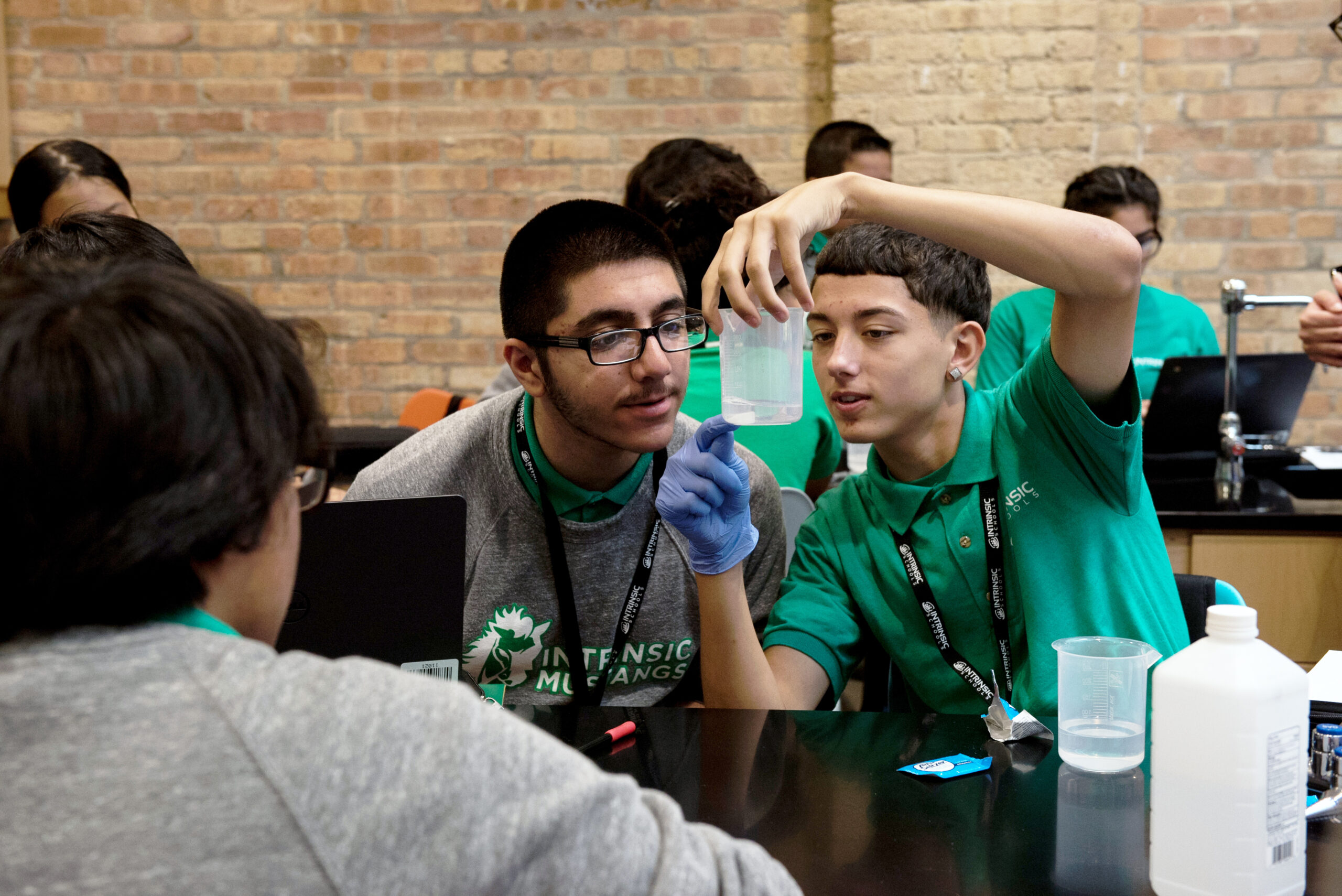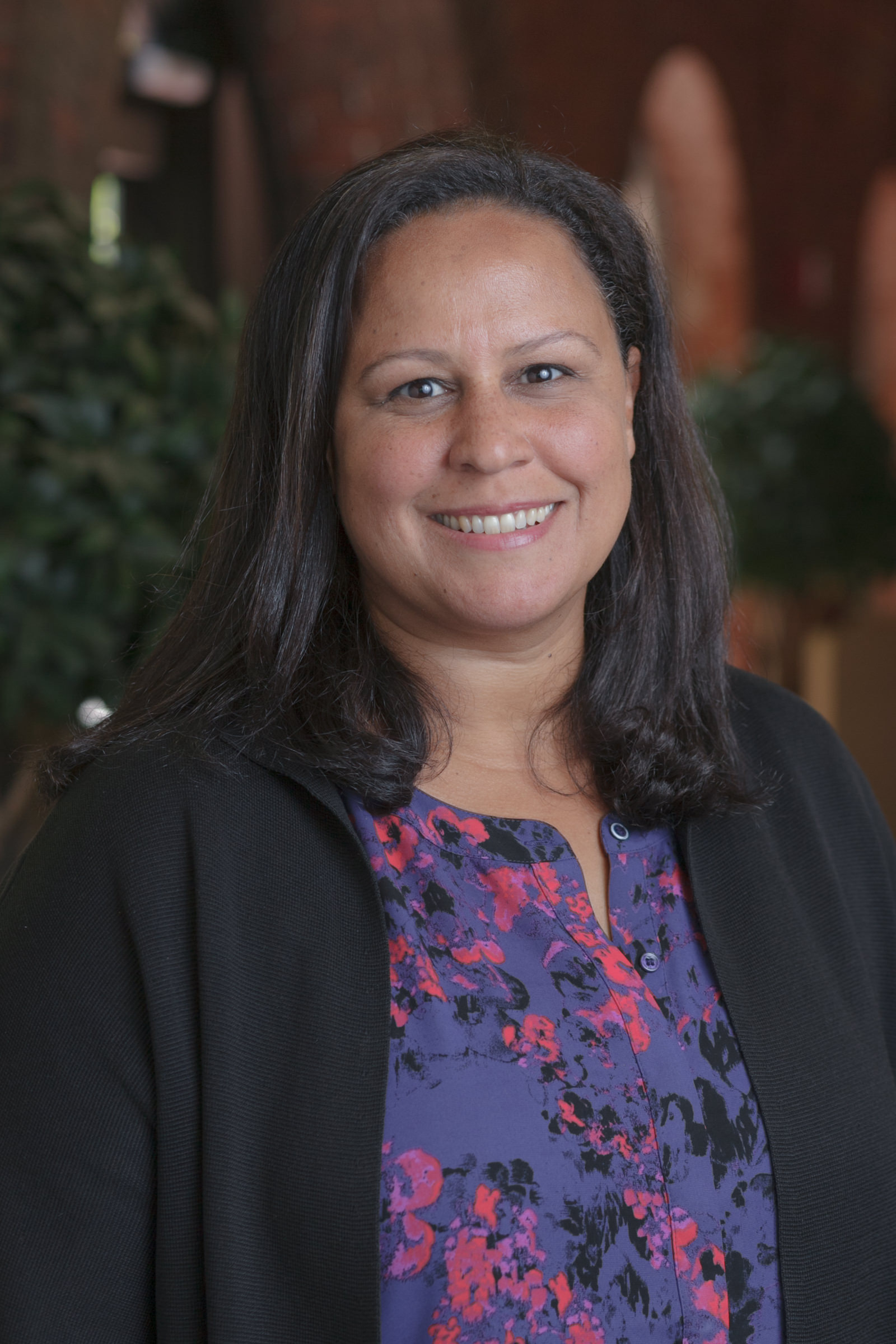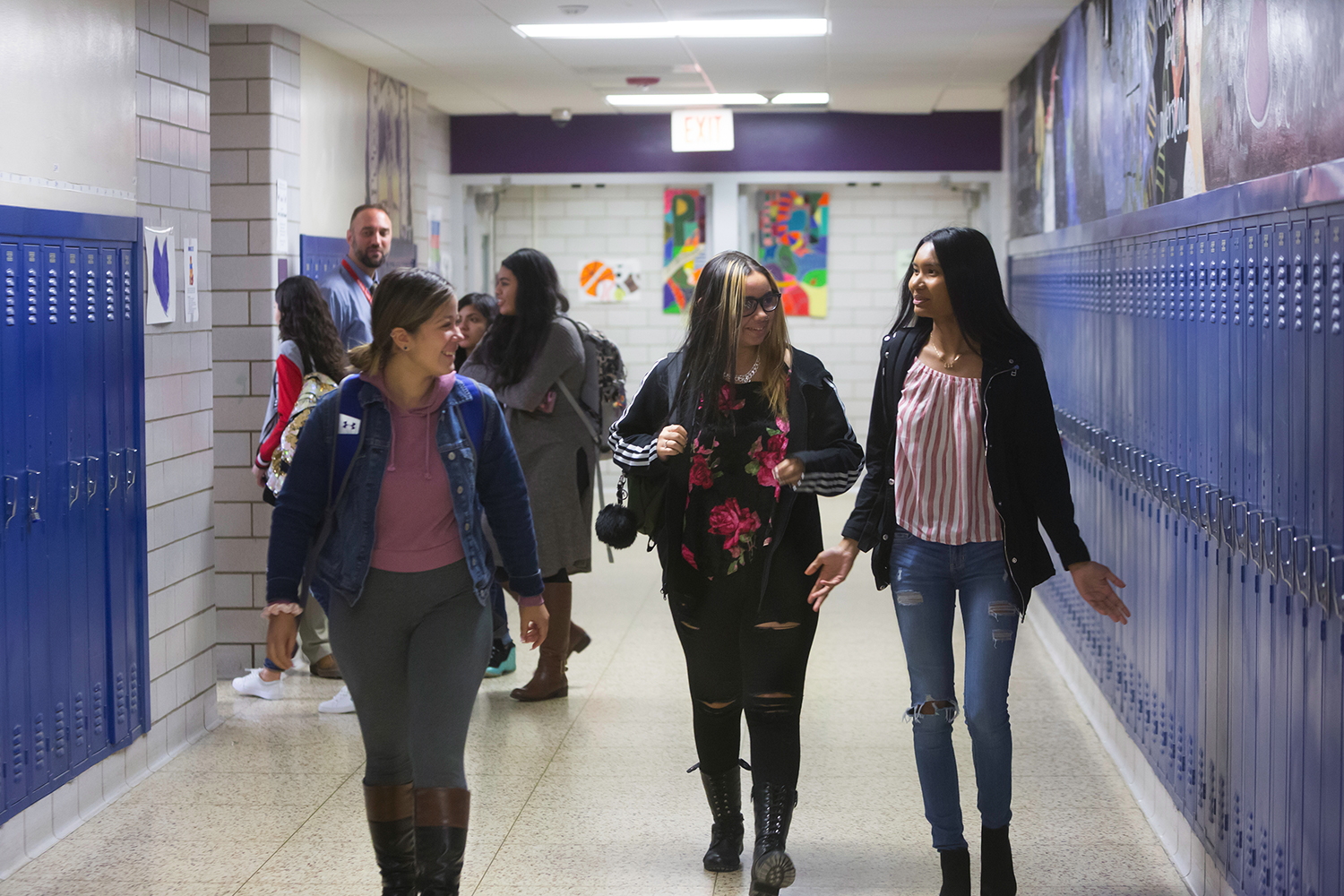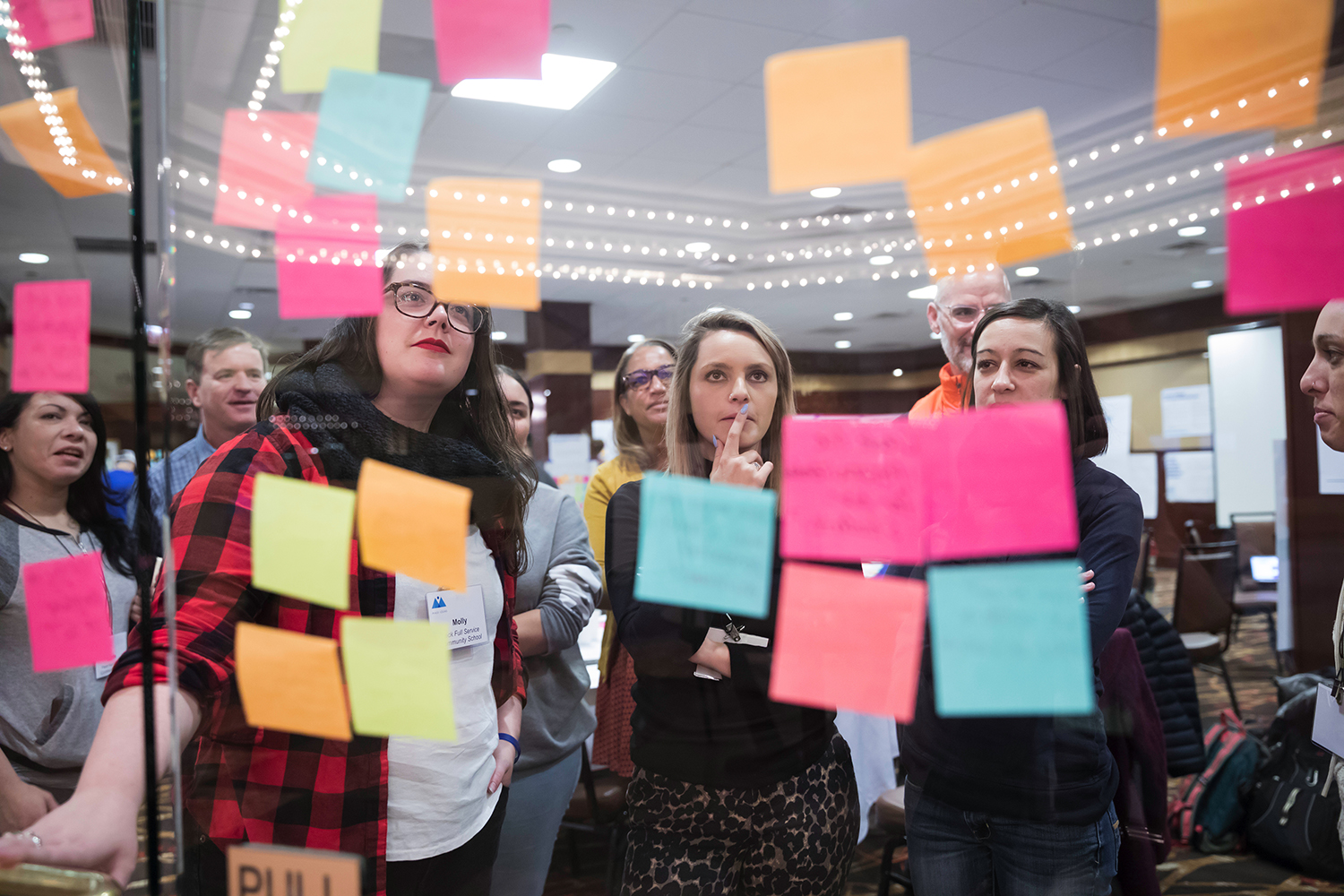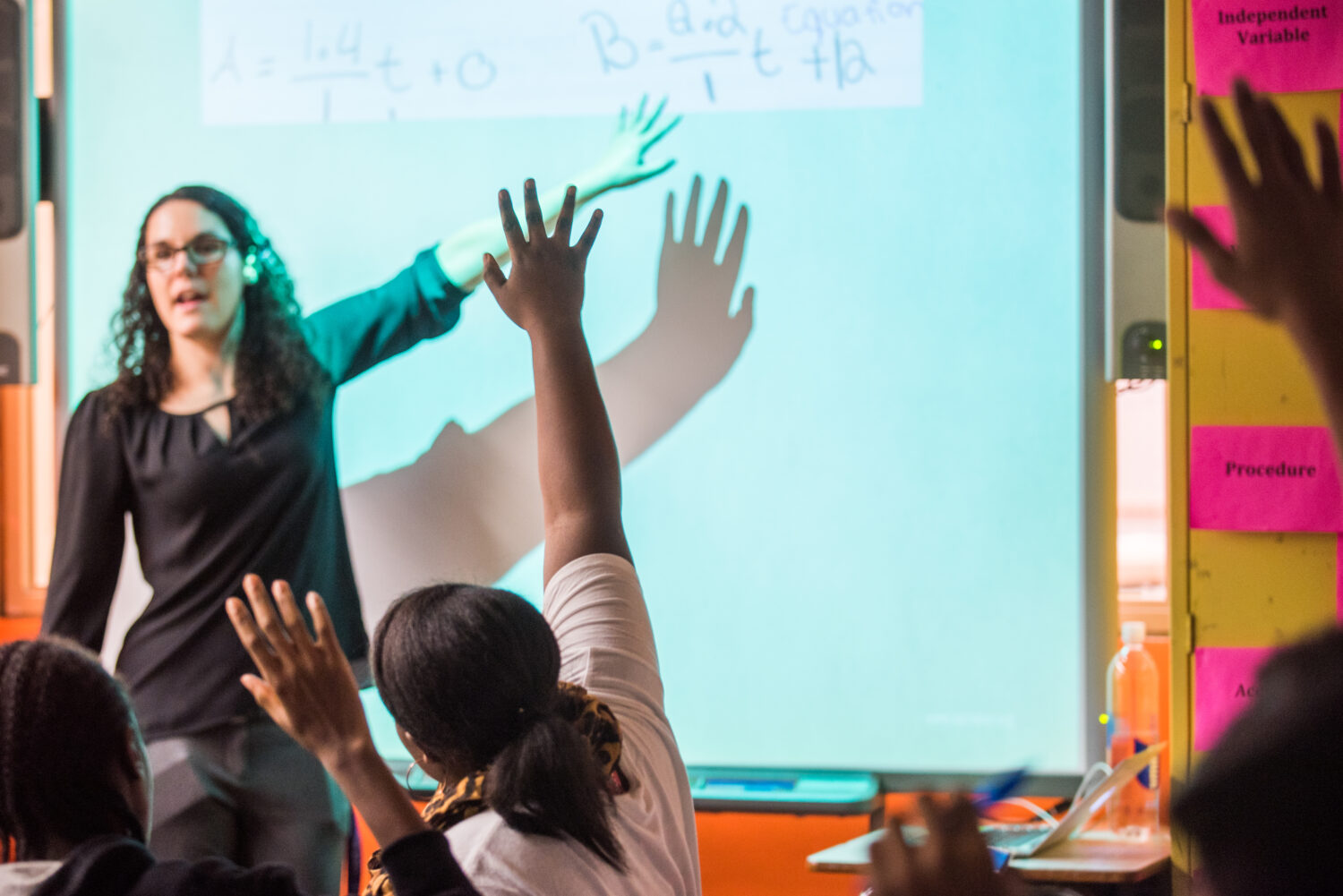The start of the school year always represents an exciting time of transition for students, families, and educators. Yet despite the promise that a new school year holds for many—new opportunities, progression toward a diploma, graduation, and other meaningful outcomes—far too many students in New England are unable to connect to success.
Recognizing this challenge, I am excited to announce a new initiative with the goal of improving and/or creating a new generation of schools and programs to ensure higher levels of success for off-track students. Our starting point is an information-gathering phase. We extend an invitation to current practitioners, thought leaders, and visionaries in the work of designing new (or improving existing) schools or programs that focus on off-track student populations to introduce us to your current work and aspirations via this Request for Information.
Responses to this RFI will provide a baseline assessment of both interest and capacity within New England, and establish a critical foundation from which Barr can catalyze and support a broader regional initiative. Barr will identify partners to support in this initiative through a competitive RFP process, which we expect to launch later in the fall. We anticipate providing both design and implementation support to school and program operators focused on high-quality school and program design, as well as other partners focused on investments in technical assistance, data, evaluation, policy and advocacy, and communications and engagement.
To learn more about the RFI, I encourage you to visit our new web page for this initiative.
In launching this new initiative, we must acknowledge that secondary education in New England as we know it must change. So how can we support those organizations dedicated to serving off-track students while simultaneously catalyzing broader change?
As a starting point, we need to understand, and consider together, the nature and scope of the challenges. In looking at specific student performance and sub-population data for the region, we have been able to identify off-track high school youth as a very distinct population that, as one of the region’s most under-served student populations, represents an urgent need for new secondary options. We look forward to sharing this analysis in more detail in the coming months.
We also have a sense of what works with off-track students. Proof points exist—both within and outside of New England—to show that students who fall off track in high school can achieve graduation and post-secondary success. Student success is contingent upon having schools and programs with designs that are flexible and responsive to specific student needs. While effective schools, programs, and practices exist, much more needs to be done to capture and scale what works, inform and train a broader set of school and organizational leaders and practitioners, enable innovation, and build effective communities of practice that can learn from and support each other.
This evidence aligns with the kinds of learning experiences that are critical for all students: deeply personalized learning, a clear focus on student engagement and agency, and strong linkages to post-secondary and career opportunities. A distinct initiative focused on improving secondary options for off-track youth presents a tremendous opportunity to support not only the efforts of existing practitioners and organizations, but also continued innovation focused on new school and program designs and models. What works for off-track student can work for all students, and efforts to support New England’s off-track youth can inform, augment, and enhance opportunities for all secondary students across the region.
We believe that investments in off-track students are critically important. The region’s dominant narrative of success does not apply here: rising graduation rates and connections to post-secondary success in both school and career do not yet apply to these students, and in fact mask a broader and growing achievement gap. The initiative launched today by Barr’s Education Program is our first step in communicating that we want to support these students by supporting the practitioners, organizations, and individuals that are committed to their success. We also seek to catalyze and connect a broader community of organizations and advocates that support New England’s off-track youth.
A growing national movement to rethink secondary education is underway in the United States, focused on efforts to connect more students to success in high school, college, and career, and Barr is fully supportive of this movement. We are also committed to ensuring that off-track students—and the schools, programs, and research that are focused on them—are included in both regional and national endeavors to re-imagine secondary education.
As we look to build on growing national momentum for a new vision of secondary education, opportunities exist to create space to push our thinking, to innovate, and to do more for New England’s off-track secondary students. We know that a community of practitioners share our belief in the potential of these students and have high expectations for all of them. We want to support their efforts to ensure that off-track students have equitable access to high-quality schools and programs that will allow them to achieve their potential in and beyond secondary environments. Connecting more students to success is a long-term vision that builds on existing strengths in our region, but also challenges us to think differently. There is an urgent need to act in support of New England’s off-track youth, and we hope that many will join us in efforts to do so.
